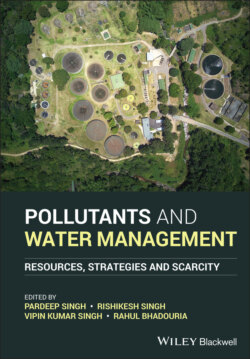Читать книгу Pollutants and Water Management - Группа авторов - Страница 74
3.8 Challenges Faced in Industrial Water Regulations
ОглавлениеPoor coordination and regulation between different regulatory bodies lead to the improper management of industrial wastewater. Also, poor or sometimes ignored water tariffs and the provision of very rare incentives to industry owners if they are reuse water do not attract industry owners to undertake water abstraction minimization and water reuse maximization. This conflict between industry and local communities will become unmanageable if not addressed. Water control measures have not shown significant improvement because although different water bodies are made to regulate and monitor this issue, the powers assigned to these regulating bodies are not framed properly. For example, the MoWR is the principal agency responsible for water but no authority has been given to take action related to water pollution or for the industrial use of water. Similarly, the MoI focuses on the planning and development of water resources for industrial purposes, but it has no power to regulate and monitor water use by GPIs.
To meet discharge norms, wastewater treatment has been installed by industry. However, a common practice adopted by industry is to measure the pollution level in a given quantity of water to meet the required standard by diluting the effluent in freshwater. Second, reusing water from different production steps is not commonly followed, therefore, clear water is contaminated when discharged with effluent, but if water reusing technology is adopted, it is possible to reduce water pollution if water pricing encourages industries to conserve water.
